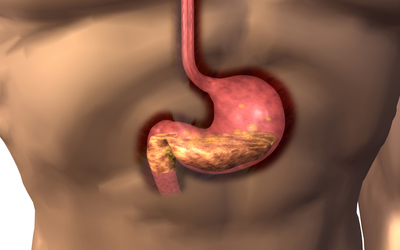Top Tips for Speeding Up Your Metabolism
People always seem to be blaming their metabolism for their difficulties in losing weight, but how much is it really to blame? If you’ve cut down on the calories and started exercising more, but still don’t seem to be shifting the pounds, then chances are a slow metabolism could be the cause. But you don’t need to just accept this and remain overweight, as there are ways to speed it up and lead a healthier lifestyle. Your metabolism is responsible for the chemical processes which take place within the body to keep you alive and keep the organs functioning. This means everything from repairing cells, breathing and digesting your food. These processes need energy, and the basic amount of energy you need to carry out the chemical processes is known as the basal metabolic rate or BMR.
The amount your BMR accounts for can range between 40 and 70 percent of your daily energy requirements, depending on the lifestyle you lead and your age. And if you have a low BMR then you are suffering with a low metabolism, which can affect how quickly and easily you can lose weight. Your age, body size and genetics all contribute to how your metabolic rate works. Men tend to have a higher BMR than women, as they have more muscle mass and less body fat overall. This is why their calorie intake each day is higher than women. An average man consumes around 2500 calories every day, whilst women eat around 2000 per day. Of course, these figures vary depending on your age and how much exercise you do, so this is worth remembering when you plan your meals each week.
Studies suggest that people who are overweight could actually have a higher metabolism than leaner people, because they have bigger muscles and internal organs. People also eat more than they think, so they’re consuming more calories than they think they are. In most cases, people gain and maintain weight because they are eating and drinking too much, and not doing enough exercise. Crash diets can reduce your BMR, as some fad diets can force your body to break down muscle as an energy source. The lower your muscle mass is, the slower your metabolism will become. And with this process taking place, it becomes all the more necessary for your body to hold on to fat where it can – so the moment you start eating normally again, you’ll gain all of your weight back and then some. Aerobic activity is a great way of boosting your metabolism, as it burns calories effectively and helps you to lose weight. Strength training is also useful as muscle mass is increased, which speeds up your metabolism in turn, helping you to lose weight more effectively. You don’t need to become incredibly muscly to achieve this goal though – muscle strength training on two or more days a week is all it takes to achieve a faster metabolism.
Lastly, staying active in general will ensure that you keep burning calories throughout the day. This doesn’t necessarily mean a heavy session down the gym though. It could be as simple as walking to work, doing a half-hour session of housework, or going for a stroll around the block on your lunch break. Anything which keeps you moving is going to do wonders to your health and weight loss. Combining this with a healthier diet and plenty of water in place of fizzy drinks will help you to lose weight, as well as boosting your well-being in the process.


Comments are closed.